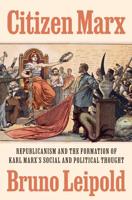Publisher's Synopsis
This book presents unique, critical, summaries of major works that the author proposes as the core classical sociological theory (Émile Durkheim's), as the three main supplementary classical sociological theories (Karl Marx's, Max Weber's, and Abdurahman Muhammad Ibn Khaldûn's), and as two key precursor theories (Thomas Malthus's and Charles Darwin's). The author discusses, using many supporting quotations from the originals, themes from Darwin's The Origin of Species; Malthus's First Essay on Population; Durkheim's The Division of Labor in Society, Suicide, Moral Education, The Elementary Forms of Religious Life, and The Rules of Sociological Method; Marx's Capital, The Communist Manifesto, The German Ideology, and Wage Labor and Capital; Weber's Economy and Society, The Protestant Ethic and the Spirit of Capitalism, From Max Weber: Essays in Sociology, and The Methodology of the Social Sciences; and Ibn Khaldûn's The Muqaddimah, together with works that employ the same basic theme as the latter that originated as part of 20th century Western sociology. Darwin introduced the concept of"natural selection," that is, the non-foresightful, non-preparatory, and therefore probabilistically reactive, survival mechanism whereby a single hypothetically original life species has survived on Earth by differentiating itself into the hundreds of millions of species that have existed so far (most of which have already gone extinct). Malthus, however, had already introduced the idea of a proactive theory that would anticipate and prepare our species to meet survival threats before they actually occur. The central question of this book, then, is What do the theories examined here contribute to our eventually constructing a sociological theory that would participate in identifying, forecasting, and preparing our descendants to meet future threats to human species survival?










